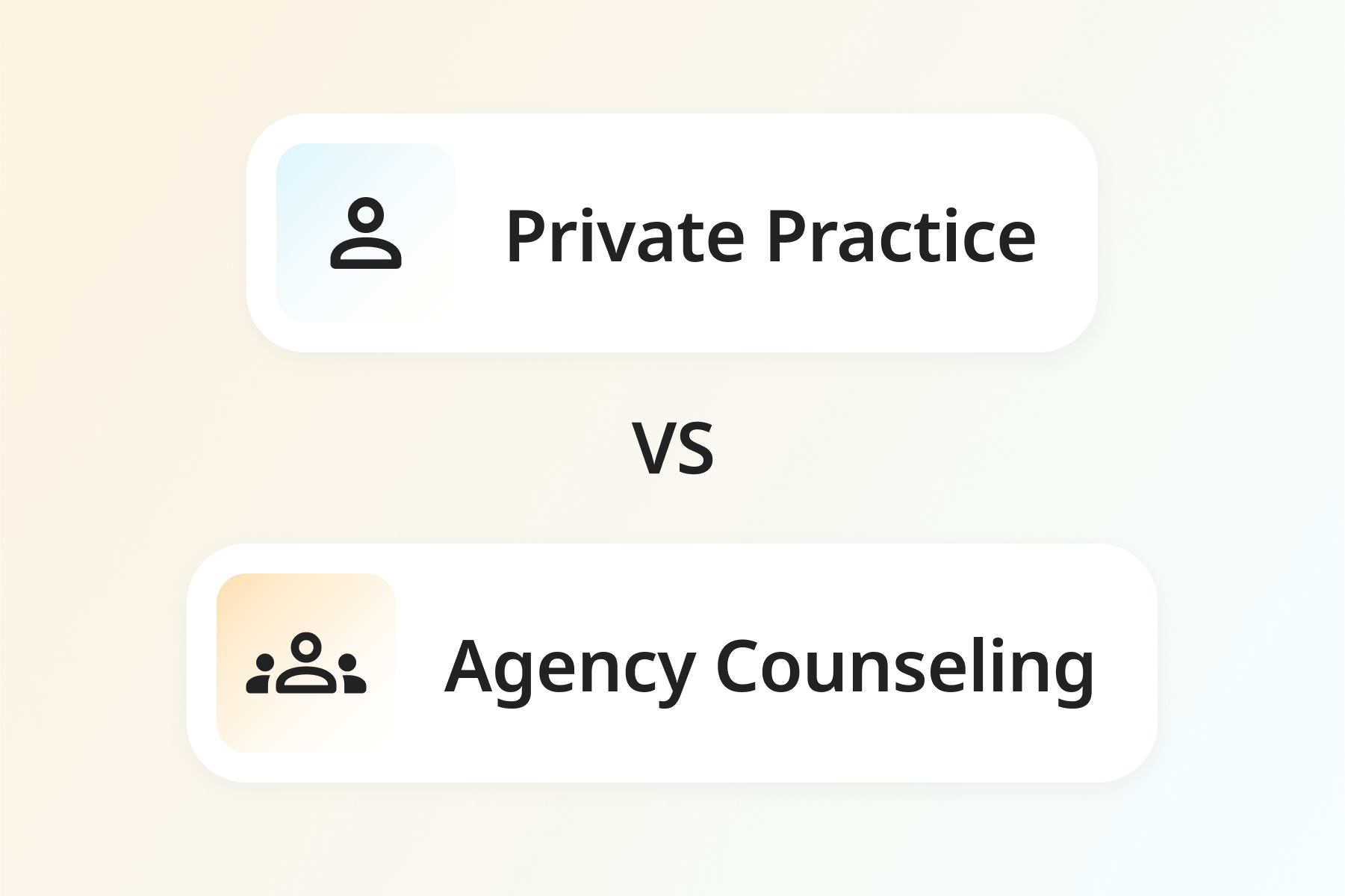Discussing Politics in Therapy


Are your clients showing signs of political anxiety? In an era of constant news cycles and polarized opinions, political stress has become a significant issue for many of us.
As mental health counselors, it's essential to provide clients with the tools and support they need to navigate the complexities of political stress with resilience and empowerment. That said, it’s also important to acknowledge and address your own emotions around the state of democracy.
Understanding political anxiety
Although not a formal diagnosis, political anxiety is a phrase used to describe the anxiety experienced as a result of the current domestic or international political situation and world events.
Uncertainty is a breeding ground for anxiety and fear. Many people start to imagine worst-case scenarios. For many people with preexisting anxiety and depression, times of societal uncertainty and upheaval exacerbate these feelings.
What’s causing so much stress
There are a number of possible factors that may contribute to your clients’ (and your own) heightened levels of political anxiety.
1. Feelings of polarization. Clients may feel anxious when they sense that their family, friends, or community is divided politically. Increased pressure for people to “choose a side,” results in social tension and conflict with acquaintances and close loved ones.
2. Fear of change. For people who are personally vested in a certain political outcome, the fear of a possible change in leadership and policies can feel deeply frightening and troubling.
3. News fatigue. We live in an age where news comes from everywhere - our tvs, our radios, podcasts, social media, etc. Following daily political news can drive anxiety during a presidential election by creating uncertainty about political outcomes.
Discussing politics in therapy
Because there tends to be a social taboo around discussing political issues, many therapists struggle with how to address political distress with clients. You may feel torn between the desire to maintain professionalism, while also recognizing how the current political climate is affecting your own mental health.
Remember that your clients may also be uncomfortable discussing politics during a session. You may notice they are pressuring you to disclose your own political beliefs or feelings on certain topics or look for ways to challenge you to see and support their point of view.
As a mental health provider, it’s your role to provide a non-judgmental space where they can process political anxiety and feel accepted and understood regardless of their, or your, beliefs.
Ways to support clients experiencing political anxiety
While there is no perfect way to navigate political anxiety, below are seven strategies to iIncorporate into your therapeutic practice. Feel free to adapt them to fit your unique counseling style and the specific needs of your clients.
1. Create a safe and neutral space
Maintain a neutral stance on political issues to ensure that clients feel comfortable sharing their views and concerns. Emphasize that your role is to support their mental health, not to discuss or debate political ideologies. By creating a safe space when they can express their concerns, your clients will feel heard and understood, which is essential for effective therapeutic engagement and overall mental health.
2. Promote healthy media consumption
Excessive exposure to news and social media can intensify political stress. Encourage clients to set boundaries around their media consumption, such scheduling specific times to check the news rather than continuously throughout the day, refraining from spending too much time on social media platforms, and curating their feeds to avoid overly negative politics content.
3. Encourage taking action
Taking action can provide a sense of control and purpose. Talk to your clients about channeling their stress and anxiety into ways they can make a difference. That might involve getting more information on specific candidates and the policies they support, volunteering, or helping people sign up to vote.
4. Remind them they aren't alone
It's important to validate that feelings of fear are legitimate, and can even be expected, during uncertain times. Bring comfort and support by reinforcing that it’s normal to feel overwhelmed, scared, or anxious and other people are experiencing the same emotions too.
5. Address underlying Issues
Sometimes political stress can be a manifestation of deeper, underlying issues. Explore these with your clients to make sure that their political stress isn't masking other anxieties or emotional challenges. Addressing these root causes can lead to more comprehensive and effective treatment.
6. Develop coping strategies
Work with clients to create a personalized strategy for managing stress as it arises. Encourage them to connect with friends, family, or support groups who share their values, help them create a mindfulness practice or self-care routine, and recommend regular check-ins with loved ones to foster social connection.
7. Explain about the political process
A lack of understanding about the political process can contribute to feelings of helplessness and anxiety. Consider offering clients educational resources about how the political system works, how policies are made, and how they can get involved.
As a therapist, your political anxiety matters too
We are all allowed to feel overwhelmed during this time. It’s important to recognize that, while your job is to support clients, you are human too. If you notice yourself having strong emotions in response to what clients are saying, set aside time to acknowledge and process those feelings with a mentor or trusted colleague. If necessary, take a step back and decrease your workload, increase your self-care, and find their own mental health support.
For more information, download our free guide: Navigating Political Stress in Therapy.

.jpg)

